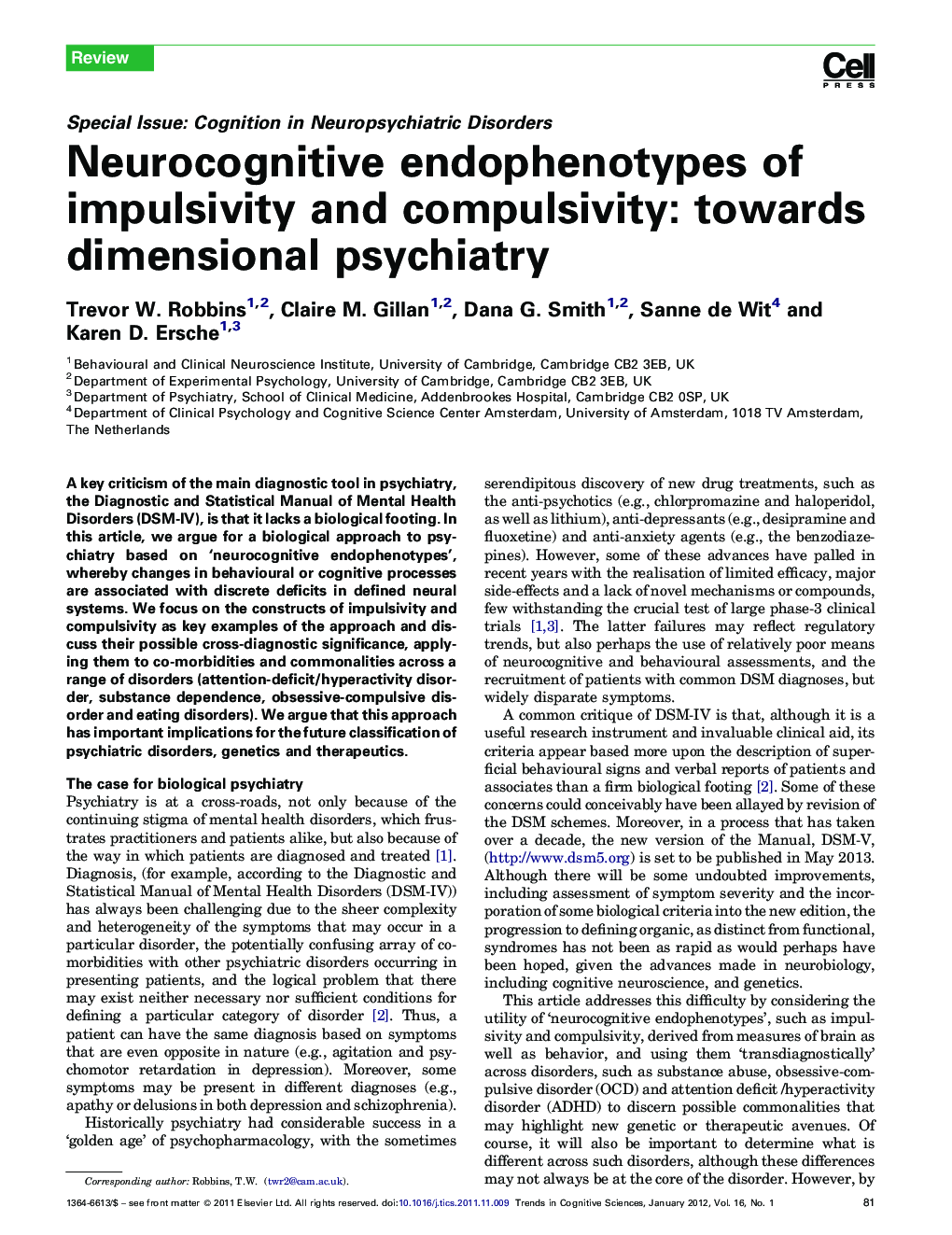| Article ID | Journal | Published Year | Pages | File Type |
|---|---|---|---|---|
| 141705 | Trends in Cognitive Sciences | 2012 | 11 Pages |
A key criticism of the main diagnostic tool in psychiatry, the Diagnostic and Statistical Manual of Mental Health Disorders (DSM-IV), is that it lacks a biological footing. In this article, we argue for a biological approach to psychiatry based on ‘neurocognitive endophenotypes’, whereby changes in behavioural or cognitive processes are associated with discrete deficits in defined neural systems. We focus on the constructs of impulsivity and compulsivity as key examples of the approach and discuss their possible cross-diagnostic significance, applying them to co-morbidities and commonalities across a range of disorders (attention-deficit/hyperactivity disorder, substance dependence, obsessive-compulsive disorder and eating disorders). We argue that this approach has important implications for the future classification of psychiatric disorders, genetics and therapeutics.
